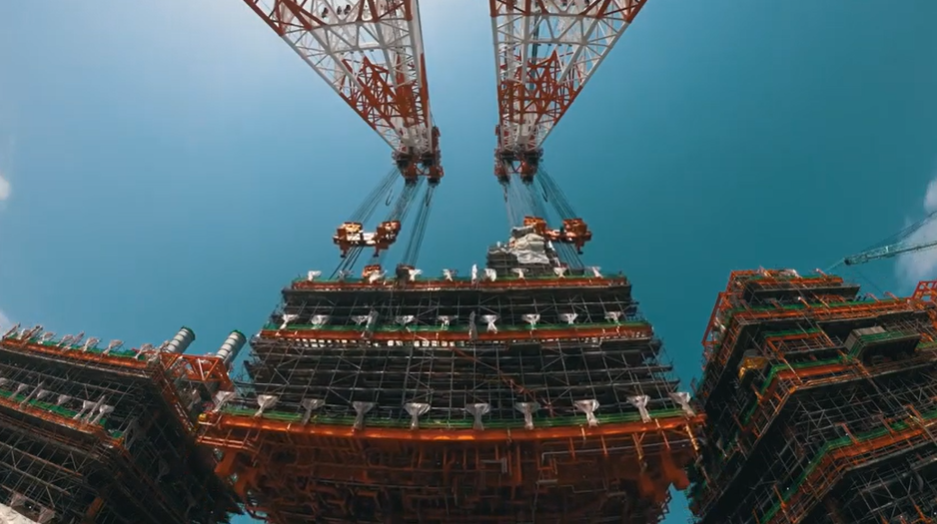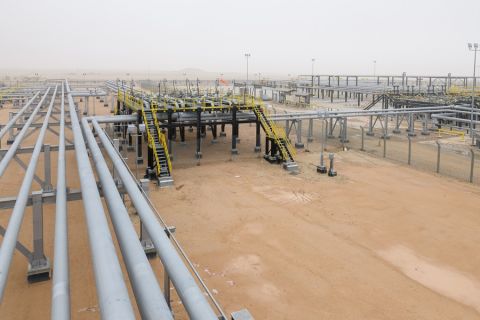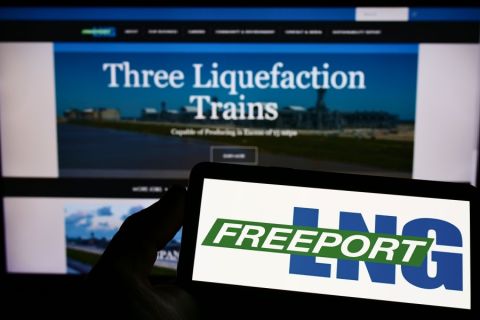In East Africa, much of the oil and gas story revolves around LNG.
Even so, a host of challenges surround LNG in the region, and operators seeking oil and gas projects have to overcome legal obstacles, security issues and an overall lack of infrastructure, according to a pair of analysts at Wood Mackenzie.
Operators have found gas in both Mozambique and Tanzania.
Tanzania’s fiscal terms were previously unfavorable to development, but the government now seems to be more supportive of the industry, Liam Yates, Wood Mackenzie’s senior research analyst for Sub Saharan Africa Upstream Oil & Gas, said.
“It recognizes that if it doesn’t move on the terms, this gas will remain stranded,” Yates said. “There has been progress toward heads of government to renegotiate the terms to enable the project to go ahead.”
For its part, Equinor took a write-down on its gas project in Tanzania.
Mozambique has lots of gas, Yates noted, but there are various challenges regarding LNG projects. TotalEnergies declared force majeure on its operated Mozambique LNG project in April 2021 due to a security situation in the north part of the country.
“It has improved, but Total will not return until it is sure they won’t have to put down their tools,” Yates said.
With what is looking like at least a two-year delay on the project, first LNG is unlikely until the second half of the decade, if TotalEnergies does return, he said.
The Eni-operated Coral South project using the Coral Sul Floating Liquefied Natural Gas (FLNG) plant offshore Mozambique continues moving forward.

The project, sanctioned in 2017 by Eni as the operator on behalf of partners Exxon Mobil, CNPC, GALP, KOGAS and ENH, had gas first introduced to the plant in June with first LNG cargo expected later this year. The ultra-deepwater project adds Mozambique to the list of LNG-producing countries.
The Coral Sul FLNG is 432 m long and 66 meters wide, weighs around 220,000 tons and can accommodate up to 350 people in its living quarter module. The facility is located in about 2,000 m water depth and is moored by 20 lines. Coral Sul FLNG has a gas liquefaction capacity of 3.4 million tons per year and will put in production 450 Bcm of gas from the Coral reservoir, located in the offshore Rovuma Basin. Coral-Sul FLNG is the first FLNG facility deployed in deepwater offshore the African continent.
RELATED
Eni Achieves First Gas from Coral South FLNG Offshore Mozambique
“The latest talk we’ve been hearing is that Eni is potentially favoring a second FLNG [facility],” Yates said.
But north of Mozambique, Eni had a “vaguely” promising exploration well in Kenya that didn’t live up to expectations, Yates said.
“I realistically don’t expect much offshore Kenya in the near future,” he said.
Onshore, Tullow is purportedly looking to farm down a project in the South Lokichar Basin.
“The oil is waxy, heavy, not the easiest to produce. It needs a heated pipeline to get to market,” Yates said.
Gail Anderson, Wood Mackenzie’s research director for Sub-Saharan Africa Upstream, said that piracy, once a major concern off the eastern coast of Africa, seems to have diminished, although it is still an issue in West Africa. About five years ago, piracy was common from Somalia down to Mozambique, with some high-profile incidents being reported, but that “seems to have kind of fallen away,” she said.
“Being offshore has a lot of advantages in Africa,” Anderson said, because it negates certain risks associated with onshore projects.
One of those concerns is around infrastructure, which is necessary for transport.
For instance, while countries are keen to obtain revenue from oil and gas, pipelines such as the TotalEnergies-backed Uganda pipeline project attract “an awful lot of interest from environmentalists,” Anderson said.
There has been a lot of pressure on TotalEnergies, Yates said, regarding the pipeline and how people displaced by it will be compensated.
RELATED
Uganda Announces Oil Block Licensing Round, Criticizes EU Over Pipeline
And with the scrutiny on the project, some banks have said they will not help finance the $7 billion project, he added.
“It’s got a few challenges” but government support as well, Yates said. “It’s an interesting battle.”
Recommended Reading
Shipping Industry Urges UN to Protect Vessels After Iran Seizure
2024-04-19 - Merchant ships and seafarers are increasingly in peril at sea as attacks escalate in the Middle East.
Paisie: Crude Prices Rising Faster Than Expected
2024-04-19 - Supply cuts by OPEC+, tensions in Ukraine and Gaza drive the increases.
Report: Freeport LNG Hits Sixth Day of Dwindling Gas Consumption
2024-04-17 - With Freeport LNG operating at a fraction of its full capacity, natural gas futures have fallen following a short rally the week before.
Permian NatGas Hits 15-month Low as Negative Prices Linger
2024-04-16 - Prices at the Waha Hub in West Texas closed at negative $2.99/MMBtu on April 15, its lowest since December 2022.
BP Starts Oil Production at New Offshore Platform in Azerbaijan
2024-04-16 - Azeri Central East offshore platform is the seventh oil platform installed in the Azeri-Chirag-Gunashli field in the Caspian Sea.



